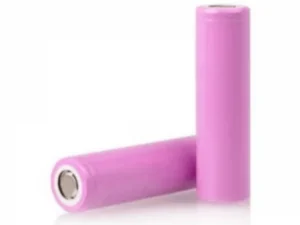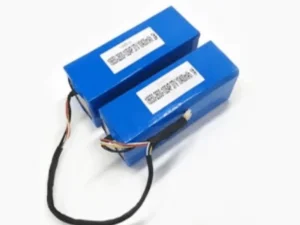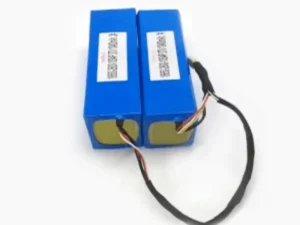Introduction:
Batteries have a role to play when it comes to keeping a product running for longer. Consider a laptop that can work for multiple hours without any wiring connection. It is since it has a capable battery inside that keeps it ticking along nicely. And while you finish work after ample hours, you do not have to charge the entire setup but just a battery.
This important product that we know as a battery has to serve the purpose of keeping a product running and also for longer. The lithium-ion battery is a popular name these and recent days. The ideal purpose of it is to keep the battery recharging at the best rate using lithium ions and cells. The working method is also great in which the lithium cells in a battery move from the negative electrode to the positive one while discharging and charging.
Also, such as lithium ion rechargeable battery ensures more productivity and easiness in operations. And also, this gives a battery for efficiency to work positively.
What is the Lithium Ion Battery?

A battery has to serve the purpose of keeping a product working for longer. When you study a battery, it must be specific in operations. And these include making a product work efficiently. Some products can keep afloat for longer without full use of the batteries. And in such products, a lithium-ion battery works efficiently and effectively. The only positive of a battery such as a Li-ion one makes charging and recharging easy and efficient.
But this recharging phenomenon does not happen by chance. However, this is a result of a finely designed battery that includes two electrodes. The cells were responsible for recharging themselves, and thus the battery moved between these electrodes. This specific movement back and forth makes the entire process worthwhile. When you break down the body of this battery, you will find there are two electrodes made from different materials.
Intercalated lithium compound is present at the positive end or electrode, whereas there is graphite present at the negative electrode. In addition to this, when the cells move between the electrodes, there happens the recharging work that enables the battery to work efficiently and effectively. Moreover, with this recharging facility, you will find easiness to work with a Lithium battery for your products.
In addition to this, you will observe that lithium-ion batteries come with three special effects:
- High energy density
- No memory effect
- Low self-discharge
But all products come with an issue, and lithium ion batteries are no different. They have also been termed a safety hazard due to flammable electrolytes. The issues or errors develop once you damage it. And also incorrectly charging will lead your battery to explosion and fire.
The Development of Lithium Ion Batteries

A battery can be of specific use offering advanced benefits. But you will need to look for the development ways, causes, and reasons for them to exist first. For example, while we are discussing lithium ion batteries, we must also keep in mind how these batteries were invented and what was the outcome of this development. The lithium-ion battery was firstly developed in 1977 but not directly as a product. Stanley Whittingham, the first person to invent the rechargeable lithium ion battery, studied the concept of intercalation of electrodes. And once you study the concept of lithium batteries, you will observe the nature of having an intercalated electrode.
As they say, developing anything for the first time requires time, dedication, and unique formulation. Apart from this, everyone coming afterward has to deal with developing something new as a component. This is what John Goodenough did as a developer or modifier to rechargeable lithium ion batteries. He only introduced a new electrode material, at the positive end, that was a lithium cobalt electrode. Akira Yoshina developed a prototype Li-ion battery in 1985 that was based on the work of previous developers.
But not everything around development is about past adventures and product designing. Many things appear in the components department that ensure that a product is feasible and capable to use by different industries. Lithium ion batteries have a great concept for working in several industries such as electric vehicles, portable electronics, military, and aerospace applications. Among all these industries, the electric vehicle production industry is benefiting greatly through these lithium ion batteries. All such benefits show how effective the development of the Li-ion battery is.
The Benefits of Lithium Ion Batteries


Batteries serve the purpose of keeping your electronic devices working for longer. This happens once your battery is fully equipped to load the device with the necessary points of power and energy. This is the basic concept of a battery and the basic advantage it brings. But since our discussion is about lithium ion batteries, we will discuss the benefits and advantages they carry for a daily or industrial customer.
1. Safety
Lithium ion batteries are a safe exponent for everyday usage. It comes after their development and production of charges making them a great product of safe usage. Apart from this, you will find them productive for longer usage since there is nothing hazardous initially. Such features also promote high-end industries such as those of electric vehicle production and aviation to have good support at their disposal for their products.
2. Size
A battery is of no use if it is not built to perfection, such as oversizing and overweight. For this, a product has to fit the standard size requirements ideally. Considering the industrial requirements, you will find lithium ion batteries to have a standard industrial size. This makes their working efficient and allows a feasible operation likewise.
3. Lightweight
Whenever you make a product attractive through advertising, you have to show how it fares against its counterparts. The best rival to a Li-ion battery is a lead-acid battery. This battery lead-acid battery is heavier, and thus, it needs a device that can ideally equip it. In comparison, the Li-ion battery is around 50 to 60 percent lighter than its direct counterpart.
4. Life
Again, we will have to bring forward a comparison regarding how efficient a battery is considering its life. Longer life is the best quality to look for in a battery. A Li-ion battery is a rival and competitor to a lead-acid battery. In comparison, the operating life of a lithium battery is ten times more than that of a lead-acid battery.
5. Maintenance-Free
If you have a lead-acid battery in usage, you will know to water them to keep them active for longer. In addition to this, you will also find these lithium ion batteries to require maintenance work over time. But you can avoid them by introducing li-ion batteries. These lithium ion batteries do not require watering. Just plug, play, and charge them for usage.
Types of Lithium Ion Batteries
Multiple types of lithium ion batteries exist that carry unique specifications, ensuring that you can use them for specific reasons. Moreover, their usage is also based on how effective they are considering the filling they come in.
Lithium Manganese Oxide
The technology to produce Lithium Manganese Oxide batteries dates back to the 1980s. Being stable at higher temperatures makes them a distinct option in comparison to other battery options. Due to such positives, they are commonly found in medical equipment and devices. Apart from this, they are also used in power tools, motorcycles that are electrically powered, and several other electric vehicle options.
Lithium Nickel Manganese
In such a battery, the cathode consists of a mixture of nickel, cobalt, and manganese. These batteries possess high specific power, or they will possess high specific energy. But these batteries cannot be equipped with both; thus, your selection will matter here. The price of these batteries is always an issue since cobalt is a costly material. When it comes to their usage, their importance is highly present in the electric vehicle industry.
Lithium Iron Phosphate
Durable and longer life make lithium iron phosphate batteries an instant hit. If we look at these distinct features, we will find that these remain points of interest for many industries, especially electric vehicle ones. And once you go deep, there appears no better option than these lithium-ion car batteries for electric vehicles.
How does the Li-ion Battery work?
If there is a battery product that makes understanding it simple, it has to be the lithium-ion battery. This battery has an anode and cathode that are both responsible for storing lithium. An electrolyte has to carry the positive lithium ions from the anode to the cathode. The same movement happens next but from the cathode to the anode.
Such a movement of ions creates free electrons that result in the development of chares at the positive current collector. This current flows from the collector to the device you are charging, such as your laptop or a smartphone, and to the negative collector of current. A separator also exists that blocks the electron flow inside the battery.
Conclusion:
Solid state lithium ion batteries have various purposes and surprising methods of working. But what amazes the most is their mode of usage. For example, their diverse usage in medical equipment, electric vehicles, and the aviation industry makes their importance unmatchable. When you join the dots, you find them a great exponent of future technology, but only if new developments continue to happen within them.
